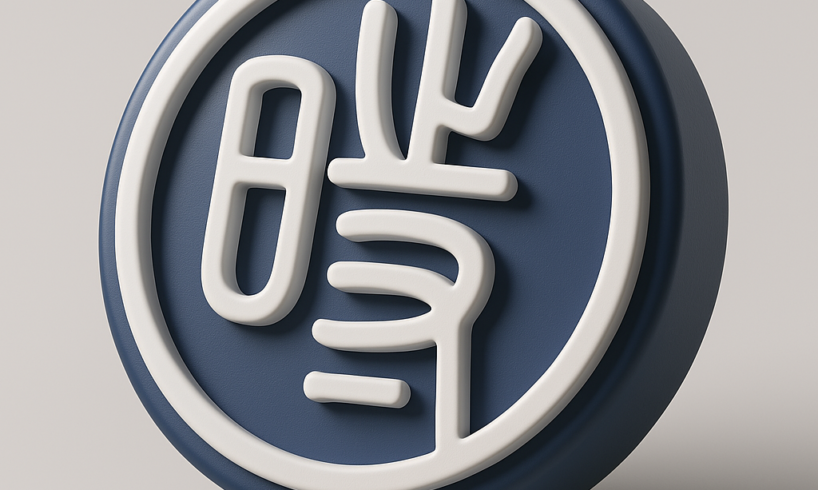
The news that two more Japanese scientists were awarded Nobel Prizes in the natural sciences has been met with considerable consternation on the Chinese internet. Shimon Sakaguchi of Osaka University and two American scientists, Mary E. Brunkow and Fred Ramsdell, were awarded the Nobel Prize for Physiology or Medicine in recognition of their work in identifying “a key pathway the body uses to keep the immune system in check, called peripheral immune tolerance.” And Kyoto University’s Susumu Kitagawa—along with Richard Robson at the University of Melbourne, Australia, and Omar M. Yaghi at the University of California, Berkeley—were awarded the Nobel for Chemistry for creating “metal-organic frameworks that can be used to harvest water from desert air, capture carbon dioxide, store toxic gases or catalyse chemical reactions.” (These tremendously porous “super sponge” materials have been likened to “Hermione’s handbag.”)
In the last 25 years, Japan has produced 22 Nobel Prize laureates (three are Japanese-American), an average of nearly one per year. Back in 2002, the Japanese government’s stated goal of winning 30 Nobel Prizes over the next 50 years was mocked by Chinese state media, including Xinhua News Agency, as a reckless boast. Japan’s string of wins stands in contrast to a dearth of Chinese laureates in the sciences: China’s last Nobel science laureate was pharmaceutical chemist Tu Youyou, awarded the 2015 Nobel Prize in Physiology or Medicine for synthesizing artemisinin and dihydroartemisinin, treatments for malaria that saved millions of lives. (China’s first Nobel laureate, theoretical physicist Yang Zhenning, or Yang Chen-Ning, passed away in Beijing this weekend at the age of 103, inspiring many admiring tributes.)
Japan’s latest Nobel Prize wins were noticeably downplayed by Chinese state media and other outlets, some of which featured vague headlines about the awards being “split between three recipients.” Others took a more defensive tone: an article from Guancha.com was titled “Japan Wins Nobel Prizes, But China is Richer and Better at Poaching Talent.” The Beijing Daily, the official newspaper of the Beijing Municipal Committee of the Chinese Communist Party, published an opinion piece titled, “Whether or Not We Win Foreign Awards Is Not Indicative of China’s Progress.” It argued that the Nobel Prize is overrated and pointed to achievements such as the artificial synthesis of bovine insulin, the development of hybrid rice strains, manned spaceflight, and the “Two Bombs, One Satellite” program as proof of China’s scientific prowess. Reactions from online nationalists included insistence that the Nobel Committee discriminates against China, and that Xi Jinping deserves a Nobel Prize for raising so many Chinese citizens out of poverty.
A number of other online commenters were more circumspect, penning essays on such topics as whether Nobel Prizes are important in spurring progress in science; which aspects of Japanese society and academia foster scientific innovation; and to what extent issues such as widespread censorship, hierarchy in academe, and excessive materialism and utilitarianism serve to impede Chinese scientific progress.
One Chinese netizen, noting that the official Nobel Prize website has long been blocked in China, posed the question, “How can a country that blocks the Nobel website hope to win a Nobel Prize?” Several essayists mocked state media’s tendency to downplay Nobel Prizes won by other countries, particularly by Japan. Chinese social media users dug up past articles to highlight state media’s short memory when it comes to Nobel coverage, including Xinhua’s aforementioned skeptical take on Japan’s Nobel ambitions, and a widely quoted 2013 speech by Chinese Academy of Sciences member Huang Wei declaring that “a decade from now, Chinese Nobel Prize winners will become commonplace.”
CDT Chinese editors have archived seven articles and numerous online comments about the recent Nobel Prize winners. An article by Ni Ren at the WeChat account Black Noise, “Four Reasons Why Japan Is Able to Win a Nobel Prize Every Year,” chalks up Japan’s success at producing Nobel Prize winners to four key reasons: a robust educational system that encourages creativity and exploration; relative socioeconomic equality and a society that respects and funds scientists; a culture of patience that supports long-term research projects; and corporate support for basic science and R&D.
“Nobel, Schmobel: Real Success Is Having Work-Unit Subsidized Peanut Oil in the Trunk of Your Car,” an article by Ye Kefei from the WeChat account Common Sense That Used to Be Nonsense, discusses “the usefulness of the useless” and the drawbacks of utilitarianism. Ye argues that the prevalence of an extremely narrow and utilitarian mindset—one that equates success with a stable government job and its attendant money, perks, and prestige—has stunted individual fulfillment and genuine innovation in China. He also contrasts what he describes as Japanese and other overseas universities’ tolerance for long-term, curiosity-driven research with Chinese universities’ focus on quick results, clear applications, and quantifiable metrics. One section of the article discusses how Chinese teachers and parents reinforce concepts of hard work and sacrifice, and often discourage their children and students from supposedly “useless” pursuits:
Everything and every experience in life is divided into “useful” and “useless.” From an early age, Chinese children are told to stay away from “useless” pursuits: What’s the point of drawing? It’s not like you’re ever going to become an artist. What good is reading novels? They’re just made-up nonsense that’ll lead you astray. Why bother playing basketball? You’d be better off doing your homework. What use is music? What are you going to do, become a street busker? And forget about playing with building blocks, or playing in the sandbox, or watching cartoons: those are an even bigger waste of time.
This utilitarian mindset isn’t limited to one’s school years: it pervades many people’s lives. If something won’t help you get promoted, earn more money, get into college, pass the civil-service exam, or land a good job, it gets classified as “useless.”
As a result, many people find themselves trapped in dull, miserable lives. They can’t express their joy or sadness through music because they never learned to play an instrument. When they see beautiful scenery, they can’t sketch it. Despite a decade or more of schooling, they’ve rarely read a book for pleasure. The resulting aesthetic deficiency means that many people have such terrible taste that they can scarcely decorate their homes or put together a decent-looking outfit.
Many parents fail to grasp a simple truth: when you apply a utilitarian approach to your child’s education and focus too much on whether activities are “useful,” you’ve already robbed that child of their future.
[…] Utilitarian thinking is deeply rooted in Chinese society. Our system of testing and evaluation is overly homogenized; success is too narrowly defined as advanced education, high income, and high social status; and there is no room for diverse, pluralistic values to thrive. [Chinese]
A satirical article from WeChat account Personal Memory Bank expresses “the hope that the Nobel will return to the ‘correct path,’ and that official media will point the way.” The author uses humor to highlight Chinese state media’s contradictory attitude toward the Nobel Prize: portraying it as a vindication of China’s system when the winners are Chinese citizens (such as Tu Youyou in 2015), and downplaying its significance when the recipients are Japanese or non-Chinese scientists—or worse, dissidents or CCP critics:
It seems that unless it is won by someone Chinese, the Nobel Prize is wrong.
But that’s not always the case. For example, there are two Chinese individuals who won Nobel Prizes in other categories, which led to years of “error messages” [for Chinese attempting to access] the official Nobel Prize website.
[“Two Chinese individuals” likely refers to dissident Liu Xiaobo, awarded the Nobel Peace Prize in 2010 while serving an 11-year sentence for “inciting subversion of state power,” and the 14th Dalai Lama, 1989’s Nobel Peace Prize recipient.]
To sum up: if the winner was backed by the Chinese government, it’s the correct decision; if not, it’s using the Nobel Prize to fan anti-China sentiment.
[…] Our media is apparently now very worried about the future of Japanese scientific research.
As early as a decade ago, in 2015, a Chinese journal published an article titled “The Profound Crisis Lurking Behind Japan’s Stunning Nobel Prize Wins,” fretting that the Japanese obsession with Nobel Prizes had caused them to stray from their ideals and forget what they stood for.
That these “palace eunuchs” would fret about the Emperor’s health is not unreasonable—after all, it just demonstrates their profound sense of responsibility for “the fate of all humankind.” [Chinese]
A second satirical piece, “Despite Little Hope of Winning the Nobel Prize, We’re Still Tackling Big Challenges,” is from Weibo account Just call me Xiong Taihang. The author, the former publisher and editor-in-chief of Blog Weekly magazine, parodies the defensive and “whataboutist” tone of the Beijing Daily op-ed. While reminding readers that Nobel Prizes still matter because they recognize novel scientific breakthroughs that might benefit all humankind, the author indulges in some amusing speculation about how ordinary citizens might apply Beijing Daily-style “whataboutism” in their daily lives:
“Whether or Not We Win Foreign Awards Is Not Indicative of China’s Progress”
This [op-ed from the Beijing Daily] is a powerful manifesto criticizing the Nobel Prize and laying bare the prize’s many shortcomings.
Pay particular attention to this passage:
By breaking free from our Nobel-Prize obsession and taking an objective look at the past and present, we can see that over the past seven decades, China has accomplished the largest-scale modernization in human history. China’s scientific and technological development has always served the pressing demands of national survival and progress. From the “Two Bombs, One Satellite” program to the artificial synthesis of bovine insulin, from hybrid rice to manned space flight, we have notched up a long series of independent breakthroughs in key fields, and established a robust and self-sufficient industrial and R&D infrastructure.
This model of applying knowledge and mobilizing resources to tackle major challenges may seem incompatible with winning Nobel Prizes, but it has undoubtedly provided considerable momentum to China’s modernization, helping to bolster fundamental scientific research […]
What does this mean?
It means that although we might not get a Nobel Prize, we’re tackling big challenges and doing great things, and basically kicking ass in other areas.
If only we could apply such glib deflection to our daily lives.
Are you a delivery driver who messed up a take-out order, and the hungry customer called to complain? Just whack him in the face with a newspaper op-ed and say: “Although my delivery method may seem incompatible with you getting your meal, it’s allowed me to deliver more orders in the short term, thus providing considerable momentum to improving our national food distribution industry!”
Are you a prospective college student whose parents are furious because you only scored 280 points on the university entrance exam? Just whack them in the face with a newspaper and say: “Although my study method may not get me into a top university, now I can focus on bigger things. Going to a junior- or vocational college means I can get out into the working world a whole year earlier!”
Are you a member of the Chinese national men’s soccer team, whose fans are furious because the team is ranked dead last in its division? Just whack them in the face with a newspaper and say: “Although our style of play might not get us into the World Cup, it has helped to bolster the confidence of other Asian teams.”
You see? With deflection as your weapon, you just can’t lose. [Chinese]





